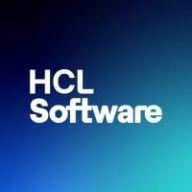

MuleSoft Anypoint Platform and HCL Workload Automation are enterprise-grade tools offering integration and automation services. MuleSoft leads in integration and support, while HCL outperforms in automation, making it preferred for complex tasks.
Features: MuleSoft Anypoint Platform provides comprehensive integration solutions, robust API management, and exceptional connectivity across various systems. HCL Workload Automation excels in advanced scheduling, workload management, and efficient job execution for complex operations.
Ease of Deployment and Customer Service: MuleSoft Anypoint Platform simplifies deployment processes with responsive customer support for quick implementation. HCL Workload Automation offers effective deployment options with strong documentation and support for intricate installations, suitable for complex environments.
Pricing and ROI: MuleSoft Anypoint Platform has higher initial costs aligned with its capabilities, delivering significant ROI when fully utilized. HCL Workload Automation offers competitive pricing, focusing on long-term value via efficient resource management and cost-saving automation.

HCL Workload Automation manages complex workflows, enabling efficient job scheduling and monitoring, essential for companies needing robust task automation.
HCL Workload Automation is designed to streamline tasks, handle large data volumes, ensure timely execution of processes, and integrate applications seamlessly. It is crucial for improving operational efficiency and reducing manual intervention. Users value its scheduling capabilities, integration flexibility, and performance. The tool's advanced features for monitoring and reporting enhance task management efficiency. Its reliability and scalability are key strengths. However, users note that it could benefit from enhanced reporting, simplified configuration, improved documentation, and better technical support response times. Optimization for resource utilization would also boost performance levels.
What are the key features of HCL Workload Automation?HCL Workload Automation is implemented in industries that require efficient job scheduling and monitoring, such as finance, healthcare, and IT services. It helps streamline processes, manage high volumes of data, and integrate with critical applications, ensuring operational efficiency. Different industries use it for automating repetitive tasks and enhancing productivity.
MuleSoft Anypoint Platform is used for integration and API management, connecting enterprise applications across retail, e-commerce, and supply chain. It supports cloud-to-cloud and cloud-to-on-premises scenarios with real-time and asynchronous messaging.
Users leverage MuleSoft Anypoint Platform for diverse integrations including cloud-based and on-premises, enabling data transformations, middleware functions, and hybrid integrations. It seamlessly connects systems like SAP, Salesforce, and Oracle, facilitating data transfers and integrating legacy systems. The platform offers a graphic interface, quick implementation, and a variety of connectors, contributing to its popularity for robust and scalable solutions. Despite its strengths, users seek better technical support, more connectors, simplified runtime management, and improved documentation.
What are the key features of MuleSoft Anypoint Platform?Enterprises in retail, e-commerce, and supply chain implement MuleSoft Anypoint Platform to connect various applications and systems. It supports real-time messaging for inventory management, synchronizes customer data across platforms, and integrates with legacy systems for smooth data migration. Users benefit from quick deployments and a marketplace that accelerates integration projects.
We monitor all Workload Automation reviews to prevent fraudulent reviews and keep review quality high. We do not post reviews by company employees or direct competitors. We validate each review for authenticity via cross-reference with LinkedIn, and personal follow-up with the reviewer when necessary.